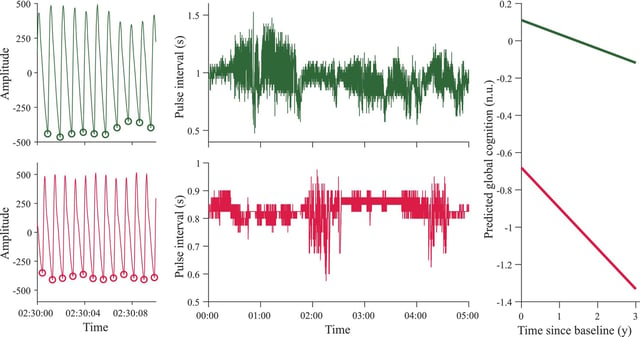Overview
- A study published in the Journal of the American Heart Association introduces pulse rate complexity, derived from wearable pulse oximetry, as a more effective predictor of cognitive decline than traditional heart rate variability (HRV).
- The research analyzed data from 503 participants, averaging 82 years of age, in the Rush Memory and Aging Project over a period of up to 4.5 years.
- Higher pulse rate complexity at baseline was associated with slower cognitive decline, highlighting its potential as a marker of cardiovascular adaptability and neural health.
- The metric leverages nonlinear dynamics, capturing multi-scale patterns such as entropy and fractal scaling to assess cardiac complexity beyond conventional HRV measures.
- Future studies aim to explore whether pulse rate complexity can predict dementia onset, paving the way for early interventions and personalized preventive care.


